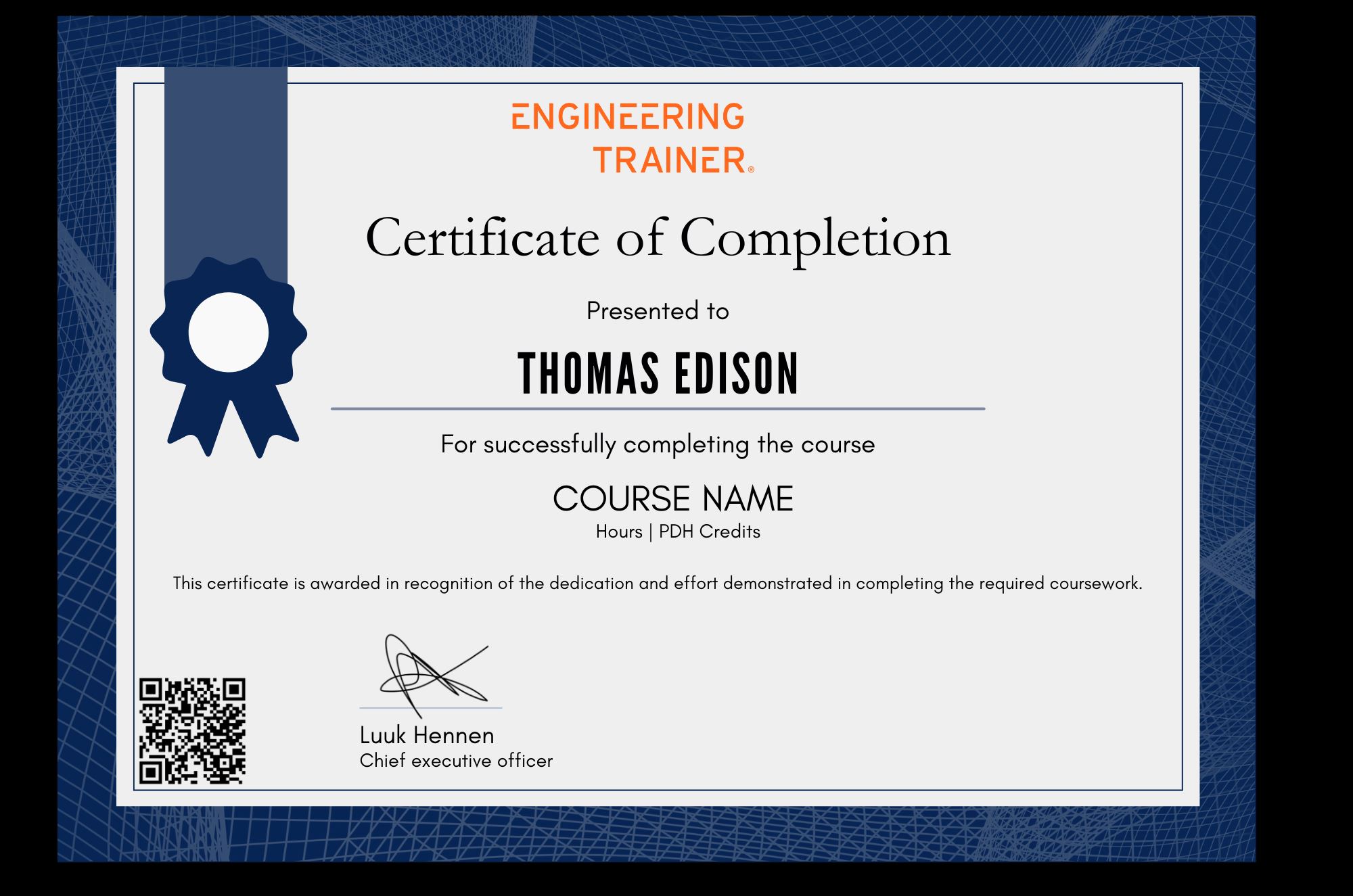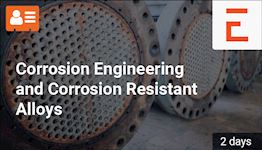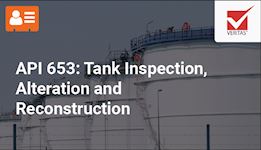Materials and Corrosion for Piping and Mechanical Engineers
Why take this course?
Enhance your understanding of metallic materials for piping and pressure vessels. This self-paced course delves into material selection, micro-structure, heat treatment effects, and failure mechanisms. Learn to ask critical questions about corrosion and fatigue, and proactively manage material integrity. Includes video lectures, quizzes, and a certificate with PDH credits.
What you'll learn
After this course, you...
• understand the difference in properties between the different metallic materials, and how these are related to the microstructure of a material,
• are familiar with the different material manufacturing methods, and have seen how additives and heat treatment can be used to influence material properties,
• have been introduced to the common corrosion, stress corrosion and mechanical degradation mechanisms and the typical mitigation methods,
• know the principles of welding metallurgy and welding quality control,
• are aware of common failures and the principles of a failure investigation in the oil and gas, and energy transition sectors,
• understand the different NDT approaches, and the optimal application areas for each approach,
• have seen the principles of integrity management for metallic materials.
About the course
Piping and mechanical engineers are regularly involved with metallic piping and pressure vessels. Typically the material selection is as defined by the material specialist in the design specification. The engineer is entitled to ask though, why this material selection? is this material susceptible to corrosion or fatigue? how should the integrity of the material be managed?
This training course aims to give engineers an appreciation of different types of metallic materials, for example what are the differences in micro-structure, what is the effect of heat treatment, and why is a certain metal susceptible to a specific failure mechanism. With the key outcome being piping and mechanical engineers who can pose the correct questions related to material selection and have the awareness to act proactively should they identify a risk.
During this course participants will learn about the decisions that are taken in material selection, from material properties and which design codes define the material composition, to how does the material selection play a key role in reducing the risk of failures due to corrosion and vibration. Cases are included to explain examples of typical in-service failures, followed by an overview of the principles of quality assurance, quality control and integrity management as applied to materials.
The course consists of 12hrs of online live sessions with the instructor. All training content is provided through your EngineeringTrainer account.
Who should attend this course
• Piping and mechanical engineers who want to gain an understanding and appreciation of material selection and material management for piping and pressure vessels.Prerequisites
Affinity with the design of piping and/or pressure vessels.Program & Details
-
Materials Structure
Live
Different types of crystalline structures, metallic bonding and dislocation theory principles
-
Materials, Properties, Specifications and Testing
Live
Physical and mechanical properties (tensile, hardness, etc) of materials and type of testing. Specification of materials
-
Materials Manufacturing
Live
Methods of manufacture including casting, forging, rolling, extrusion, pipe manufacture, HIP, additive manufacturing
-
Steel and Heat Treatment
Live
Iron carbon-phase diagram, microstructures in steel and the effect of heat treatment
-
Stainless Steel and Nickel Alloys
Live
Different types of stainless steels and nickel alloys commonly used, including the influence of alloying and microstructure on properties
-
Common Corrosion and Stress Corrosion Mechanisms
Live
Overview of common corrosion and stress corrosion mechanisms experienced in oil and gas and energy transition sectors
-
Corrosion Mitigation
Live
Explanation of the typical approaches that can be used to mitigate corrosion and stress corrosion
-
Common Mechanical Degradation Mechanisms
Live
Fundamentals of vibration fatigue and fracture and other mechanical mechanisms such as wear
-
Welding and Welding Metallurgy
Live
Explanation of the typical approaches that can be used to mitigate corrosion and stress corrosion
-
Materials Selection
Live
Explanation of the typical approaches that can be used to mitigate corrosion and stress corrosion
-
Quality Assurance and Control
Live
Difference between quality assurance and quality control, impact on materials and examples of implementation
-
Service Failures
Live
Principles of failure investigation, including examples of common failures in oil and gas and energy transition sectors
-
NDT : Non- Destructive Testing
Live
Overview of common inspection methods including limitations and optimal application areas
-
Integrity Management
Live
Principles of systematic management of integrity in relation to materials and degradation mechanisms
Certification


Why choose EngineeringTrainer
-
Unlimited Team-wide Access
-
Advance Technical Competences
-
Courses by Industry Authorities
Since using EngineeringTrainer our internal mentorship has a much more matured character.
Logan Chapman - COO at Chapman Consulting Inc.
Request a Quote
Train Smarter. Grow Faster.
Build real-world skills that help you make better engineering decisions, reduce errors, and stand out in your field.








